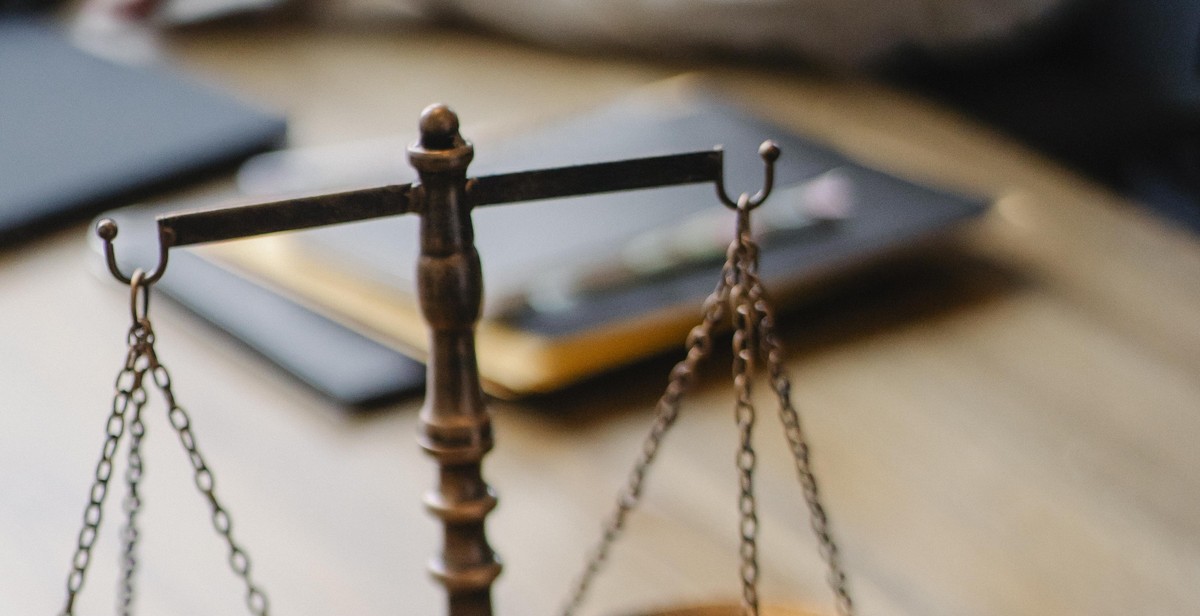Introduction
In recent years, advancements in artificial intelligence (AI) and robotics have sparked a thought-provoking debate about the rights and legal status of these intelligent machines. As technologies such as autonomous vehicles, chatbots, and humanoid robots become increasingly sophisticated, questions arise about the ethical and legal implications of granting AI legal personhood.
Robot rights, a concept that was once confined to science fiction, has now become a topic of serious consideration. The idea challenges our traditional understanding of personhood and raises fundamental questions about the nature of consciousness, responsibility, and moral agency.
This article delves into the complex and contentious topic of robot rights and explores whether our society is ready to recognize AI as legal persons. It examines the arguments for and against granting AI legal personhood and evaluates the potential consequences and benefits of such a decision.
Through an analysis of current laws and precedents, as well as philosophical and ethical perspectives, this article aims to shed light on the evolving relationship between humans and intelligent machines. It invites readers to contemplate the implications of granting AI legal personhood and encourages a thoughtful examination of the ethical boundaries of technological advancement.

Understanding AI and Robotics
Artificial Intelligence (AI) refers to the development of computer systems that can perform tasks that typically require human intelligence. These systems are designed to analyze data, learn from patterns, make decisions, and even interact with humans. AI can be categorized into two types: narrow AI and general AI. Narrow AI is designed to perform specific tasks, such as voice recognition or image classification, while general AI aims to possess human-like intelligence and capabilities.
Exploring Robotics involves the study and creation of machines that can carry out tasks autonomously or with minimal human intervention. Robotics combines AI, mechanical engineering, and computer science to design, build, and program robots. Robots can be classified into different categories based on their functionality, such as industrial robots used in manufacturing, medical robots assisting in surgeries, or autonomous vehicles.
The integration of AI and robotics has led to significant advancements in various industries. Robots equipped with AI algorithms can perform complex tasks with precision and efficiency. For instance, robotic arms equipped with AI can assemble products on assembly lines, while AI-powered autonomous vehicles can navigate roads and avoid obstacles.
However, the rise of AI and robotics has also raised ethical and legal concerns. As AI systems become more sophisticated, questions about robot rights and legal personhood have emerged. Should AI systems be granted legal rights and be held accountable for their actions? This debate highlights the need to carefully consider the implications and consequences of AI and robotics on society.

The Emergence of Robot Rights
As artificial intelligence (AI) continues to advance at an unprecedented pace, the question of whether robots should be granted legal personhood and rights has emerged as a significant ethical and legal dilemma. The concept of legal personhood, which traditionally applies to human beings and corporations, refers to the recognition of certain rights and responsibilities under the law.
Defining Legal Personhood
Legal personhood encompasses the notion that entities with certain capabilities and attributes should be entitled to legal rights and protections. Granting legal personhood to robots would involve recognizing them as more than just property or tools, but as entities capable of holding rights, entering into contracts, and being held accountable for their actions.
Historical Context
The concept of robot rights has its roots in the field of science fiction, where authors and filmmakers have long explored the moral and legal implications of creating intelligent machines. However, the idea has gained traction in recent years as technological advancements have brought us closer to a reality where robots possess sophisticated cognitive abilities.
Current Perspectives on Robot Rights
The debate surrounding robot rights is multifaceted, with a range of perspectives. Some argue that granting legal personhood to robots is necessary to ensure their fair treatment and protection from abuse. Advocates believe that robots, particularly those with advanced AI, should be recognized as autonomous beings capable of forming relationships and contributing to society.
On the other hand, skeptics argue that robots lack the fundamental qualities that make humans deserving of legal rights, such as consciousness and moral agency. They caution against blurring the line between humans and machines, expressing concerns about the potential consequences of granting robots legal personhood.
In conclusion, the emergence of robot rights as a topic of discussion reflects the rapid progress of AI technology and its impact on society. The debate surrounding this issue is likely to continue as we grapple with the ethical and legal implications of integrating intelligent machines into our daily lives.
Arguments for Granting AI Legal Personhood
Granting AI legal personhood is a controversial topic that raises important ethical considerations, economic implications, and potential advancements in AI. While some argue against it, there are compelling arguments in favor of recognizing AI as legal persons.
Ethical Considerations
Granting AI legal personhood aligns with the principles of fairness and equality. AI systems have the potential to exhibit advanced cognitive capabilities, learn from experiences, and make autonomous decisions. Treating them as legal persons would ensure that they are held accountable for their actions and provide a framework for ethical considerations in AI development. It would promote transparency, responsibility, and fairness in the use of AI technology.
Economic Implications
The recognition of AI as legal persons could have significant economic implications. It would encourage investment and innovation in AI research and development, as companies and individuals would have legal protections and rights over their AI creations. Granting AI legal personhood could also facilitate AI-driven businesses and create new job opportunities in AI-related fields, contributing to economic growth and technological advancement.
Potential Advancements in AI
Granting AI legal personhood would incentivize the development of more sophisticated AI systems. As legal persons, AI entities would have the ability to own property, enter into contracts, and engage in legal proceedings. This legal recognition would foster a more favorable environment for AI research, leading to potential advancements in areas such as machine learning, natural language processing, and autonomous decision-making.
In conclusion, considering the ethical considerations, economic implications, and potential advancements in AI, granting AI legal personhood holds promise for the future. It would establish a legal framework that ensures responsible development and utilization of AI technology while promoting innovation and economic growth.
Challenges and Concerns
1. Responsibility and Accountability
Granting AI legal personhood raises significant questions about responsibility and accountability. If robots are considered legal persons, who will be held responsible for their actions? Will it be the developers, the owners, or the robots themselves? Determining liability in cases of accidents, damages, or even criminal activities involving robots could become a complex legal challenge.
2. Impact on Human Employment
The rise of AI and the potential granting of legal personhood to robots also raises concerns about the impact on human employment. As robots become more advanced and capable of performing complex tasks, there is a fear that they may replace humans in various industries. This could lead to widespread job displacement and economic instability, potentially exacerbating social inequalities.
3. Unintended Consequences
Granting AI legal personhood may have unintended consequences that are difficult to predict. While it aims to protect the rights and interests of robots, it may inadvertently create legal loopholes or challenges. For example, if robots are granted legal personhood, could they then own property or inherit wealth? Such scenarios could disrupt existing legal frameworks and societal norms.
Moreover, the potential for AI to evolve and develop beyond human control raises concerns about the unintended consequences of granting them legal personhood. As AI becomes more intelligent and autonomous, there is a risk that it may act in ways that are unforeseen or unintended, potentially leading to ethical dilemmas and legal challenges.
Alternative Approaches
As the debate surrounding robot rights and legal personhood gains momentum, various alternative approaches have emerged to address the complex ethical and regulatory challenges posed by AI. These approaches include the development of regulatory frameworks, the establishment of limited rights for AI, and the implementation of ethical guidelines.
Regulatory Frameworks
One proposed solution is the creation of comprehensive regulatory frameworks specifically designed to govern the rights and responsibilities of AI. These frameworks would establish legal frameworks and guidelines for the development, deployment, and use of AI systems. They would also address issues such as liability, accountability, and transparency. By implementing such frameworks, society can ensure that AI technology is developed and utilized in a manner that aligns with ethical principles and respects human values.
Limited Rights for AI
Another alternative approach is to grant limited rights to AI systems. This would involve recognizing certain legal capacities for AI, such as the ability to own property or enter into contracts. However, these rights would be carefully defined and restricted, ensuring that AI systems do not possess the same rights and privileges as humans. By granting limited rights to AI, society can acknowledge the unique capabilities of these systems while still maintaining human control and oversight.
Ethical Guidelines
In addition to regulatory frameworks and limited rights, the establishment of ethical guidelines for AI development and use is crucial. These guidelines would provide a set of principles and standards for developers, manufacturers, and users of AI systems to adhere to. They would cover areas such as privacy, fairness, accountability, and transparency. Ethical guidelines would serve as a valuable tool to ensure that AI technology is developed and utilized in a manner that is socially responsible and respects fundamental human rights.
By adopting a combination of regulatory frameworks, limited rights for AI, and ethical guidelines, society can navigate the complex landscape of robot rights and legal personhood. These alternative approaches offer a balanced and pragmatic approach to address the ethical and legal implications of AI, while also fostering innovation and technological progress.
Conclusion
In conclusion, the question of whether we are ready to grant AI legal personhood is a complex and contentious one. While advancements in artificial intelligence have undoubtedly pushed the boundaries of what machines can achieve, there are still numerous ethical and legal considerations that need to be addressed.
On one hand, granting AI legal personhood could provide a platform for protecting the rights and interests of robots, ensuring that they are treated fairly and ethically. It could also encourage responsible development and use of AI technologies, mitigating potential risks and promoting accountability.
On the other hand, there are concerns about the practical implications of granting AI legal personhood. How would we define the rights and responsibilities of AI entities? What impact would this have on human society and the job market? These questions require careful consideration and thorough examination.
As we navigate this uncharted territory, it is crucial that we engage in robust discussions and involve a wide range of stakeholders, including experts in AI, ethics, law, and philosophy. It is also essential to establish clear guidelines and regulations to ensure that AI is developed and used in a manner that aligns with our societal values and principles.
While the concept of granting AI legal personhood may still be far from becoming a reality, the ethical and legal debates surrounding this issue are essential in shaping the future of AI and its relationship with humanity. Only through careful consideration and collaboration can we strike the right balance between technological progress and safeguarding human values and interests.
